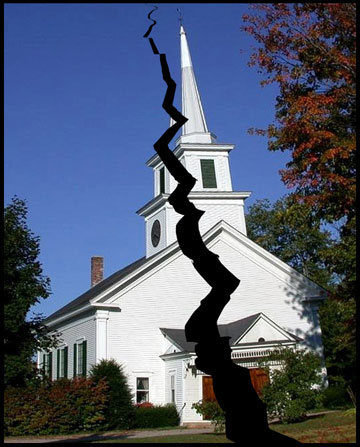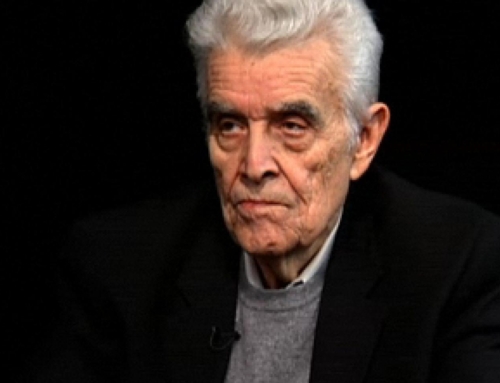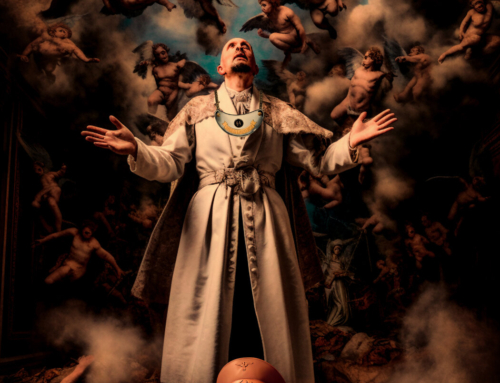Conservative Evangelical members of the Church of England are pretty displeased with the Church of England’s General Synod vote to bless same sex marriage. Their dilemma is real. How do they live in a church where they believe their opponents are heretics while their opponents believe them to be guilty of pastoral abuse for not accepting active homosexuality?
It’s a tough one. Already the Anglican communion has split into umpteen different Anglican-styled Protestant sects. If you’re interested you can check out a list here. These groups have broken away for a variety of reasons–some because the Anglican Church is too conservative, some because it is too liberal, some for liturgical reasons, others for historic or cultural/ethnic reasons. The big question is whether the Church of England itself will split rather then what has been the case historically–individuals simply leave and join some other Christian group: an Anglican breakaway sect, the Catholics, Eastern Orthodox or a Protestant group.
A genuine split in the Church of England is difficult to imagine because the Church of England is not primarily a church. It is first and foremost, the religious arm of the English establishment-the spiritual heart of the English ruling class. An Englishman who belongs to the Church of England is an Englishman. As I remember one English clergyman explaining, “I could never become a Roman Catholic. I’m English and the Church of England is sooo quintessentially English!” Very nice in a Bertie Wooster-ish sort of way, but ridiculous as an ecclesiology.
Therefore for an English member of the Church of England to leave the C of E is really a big deal. He’s not only leaving his church, he’s also leaving that whole, sweetly nostalgic and beautiful thing called “Englishness”–which gathers up all the loveliest things about England: afternoon tea in a cathedral garden, the royal family, cricket on the village green, misty mornings along the river, the countryside, the Christmas panomime, the BBC, Oxford, Cambridge and all things mellow and charming and just plain wonderfully English.T
To leave is to join something “foreign”. The classic Anglican snobbish comment about Catholicism is “The Roman Church is all well and good for Irish naavies and Italian waiters I suppose…” To leave the Church of England is an act of disloyalty to the Englishman’s King and Country. It is difficult for Americans to imagine this because we enjoy separation of church and state, but imagine for a moment that you belong to a Protestant sect–let’s say the Episcopal Church–and to be American was to belong to the Episcopal Church of the USA. (In fact, if you’ve ever visited the National Cathedral in Washington DC you’ll see the Episcopalians big attempt to enshrine their church as the National Church) But let’s say this was your religion. To change your religion would feel unpatriotic–unAmerican– and depending how patriotic you were, it would bring about a major crisis in your identity.
Of course this mentality is not unknown in Catholicism. Think of the Irish or Italian or Polish, for example, where too often their national identity if fused with their Catholic religion. This national-religion can be a good thing when the Catholicism is strong, but when the faith wavers all one is left with is an all too often rather ugly nationalism. It is also not unknown in the USA where, very often, Protestant Evangelicalism seems to be fused with enthusiastic right wing patriotism.
This blend of church and state in Anglicanism, is much more deeply bred. It is part to the genetic code in a way it is not elsewhere. So I doubt very much whether there will be any formal split in the Church of England. What is more likely is that there will be an increasing number of individuals who either seek to be reconciled with the Catholic Church or they will seek to associate their congregations with the Anglican provinces in Africa or one of the so -called “Continuing Anglican Churches”
The Church of England will go on adapting herself to the Spirit of the Age as she has always done, and as the Spirit of the Age is increasingly secular and opposed to real Christianity the Church of England will eventually become the enemy of the Faith, and if the Catholic Church stands true in the coming darkness, be assured that the establishment forces in the Church of England will perceive the Catholic Church as her greatest enemy–just like she did five hundred years ago.
However, the answer to those in the Church of England who are troubled is close at hand. The Ordinariate of Our Lady of Walsingham was established to help Anglicans who treasure their traditions and patrimony to retain their customs and culture while also being re-united into full communion with the Catholic Church. I had mentioned that it was mostly the Evangelicals in the Church of England who were upset. Would Evangelicals be welcome in the Ordinariate or is it only for disaffected Anglo-Catholics? You must ask those who are already in the Ordinariate, but in my opinion there is no reason why good, orthodox Evangelicals should not be able to find a home in the Ordinariate and bring into the Ordinariate the strengths of their own Evangelical-Anglican heritage. No doubt they would have to make some adjustments to some of their theological opinions, but that could be a strong growing point and their Evangelical zeal, their entrepreneurial spirit and their love of Scripture and emphasis on personal conversion would all help to strengthen–not weaken the Ordinariate.
When I was an Anglican priest what I considered Anglicanism’s strong point was her ability to hold together three different streams of churchmanship: Evangelical, Catholic and Charismatic. If people were taking labels I used to describe myself as an Evangelical, Charismatic Catholic. I still do–but have found that little trinity to be most completely fulfilled within Catholicism.
Membership of the Ordinariate solves the problem of Anglican fissiparousness not through further division, but by unity with Christ’s One, Holy, Catholic and Apostolic Church. Catholics are supposed to be talking at this time about “enlarging the tent” of the church. The Anglican Ordinariate does just that.







Temporarily resurrecting the hardened materialistic self in me to give his two cents to the Anglican churches and others making compromises or repackaging worldly ideologies with the garb of orthodoxy.
“So you say now the supposed supernatural events in scripture are understood to be forces of nature, and that the ancients in the Bible are primitively ignorant. Well, you’ve basically proven my point the material world is all there is and science is the only valid form of knowledge. Why then should I go to church and waste my time?
If the values preached in the Bible are merely a product of their time (e.g., matters of sexuality); thus are irrelevant today, then why do I see pushback from several of your members arguing that isn’t the case? Ever thought of getting your adherents on the same page first? I don’t know who to believe, and stop trying to convert me with lies.
“Concertized” worship with colourful theatrics? To make worship feel good and entertaining? How original… I could always get that same high from drugs, alcohol, clubs, and real concerts on a weekend.
Megachurch homilies teaching cheap grace – that being a child of God makes me prosperous in my health and wealth so long as I claim it in faith, makes me well-liked by everyone, and that I don’t have to confess my sins. Wow, that sounds really awesome, you had me mesmerised there. But I find the reality often the opposite, you promise more than you deliver and you gaslight me for not having God’s favour or enough faith. I feel very cheated; I have nothing but absolute disdain for your sorry excuse of a gospel.
Tell me honestly, what could you possibly offer me, that I cannot simply take?”